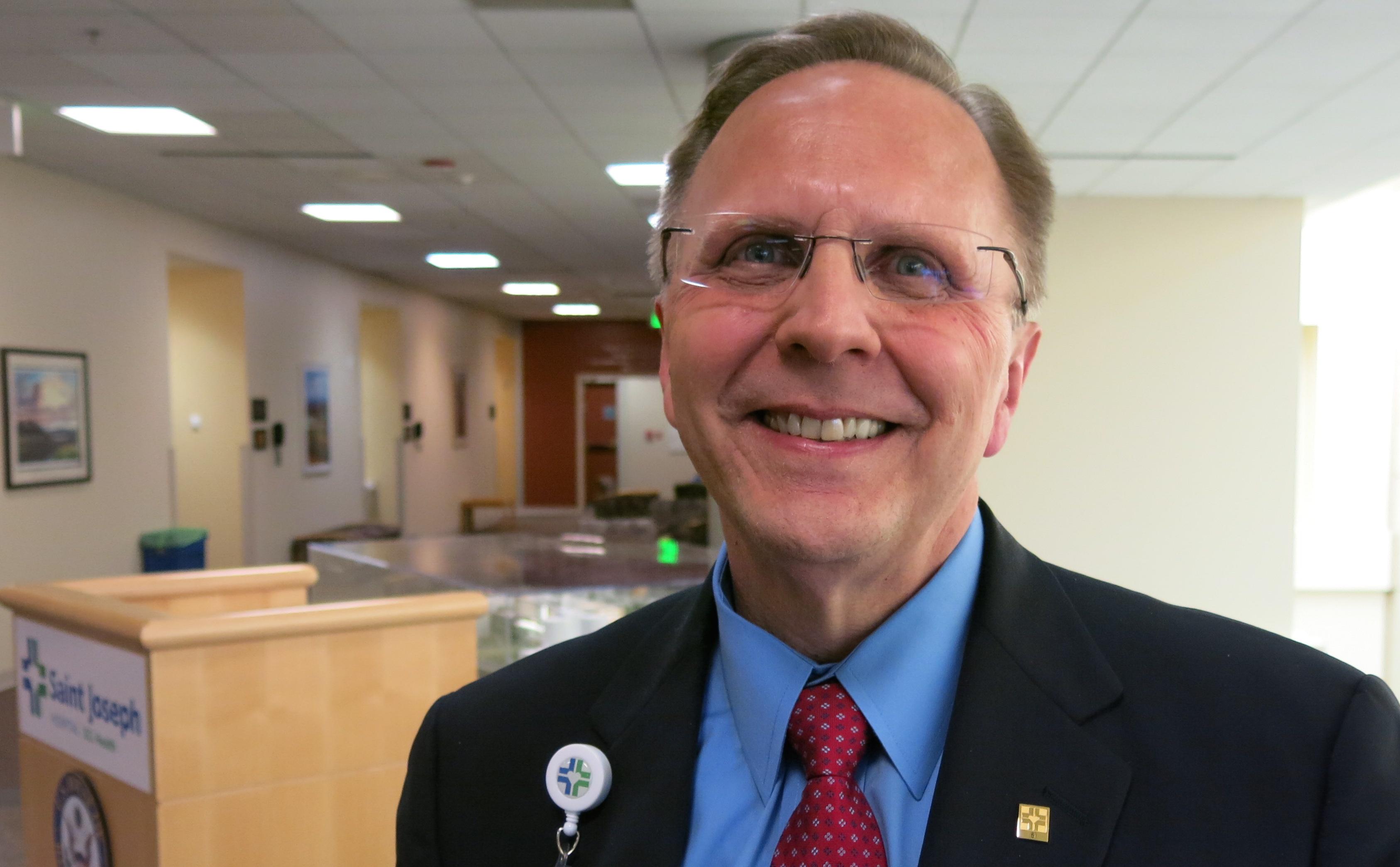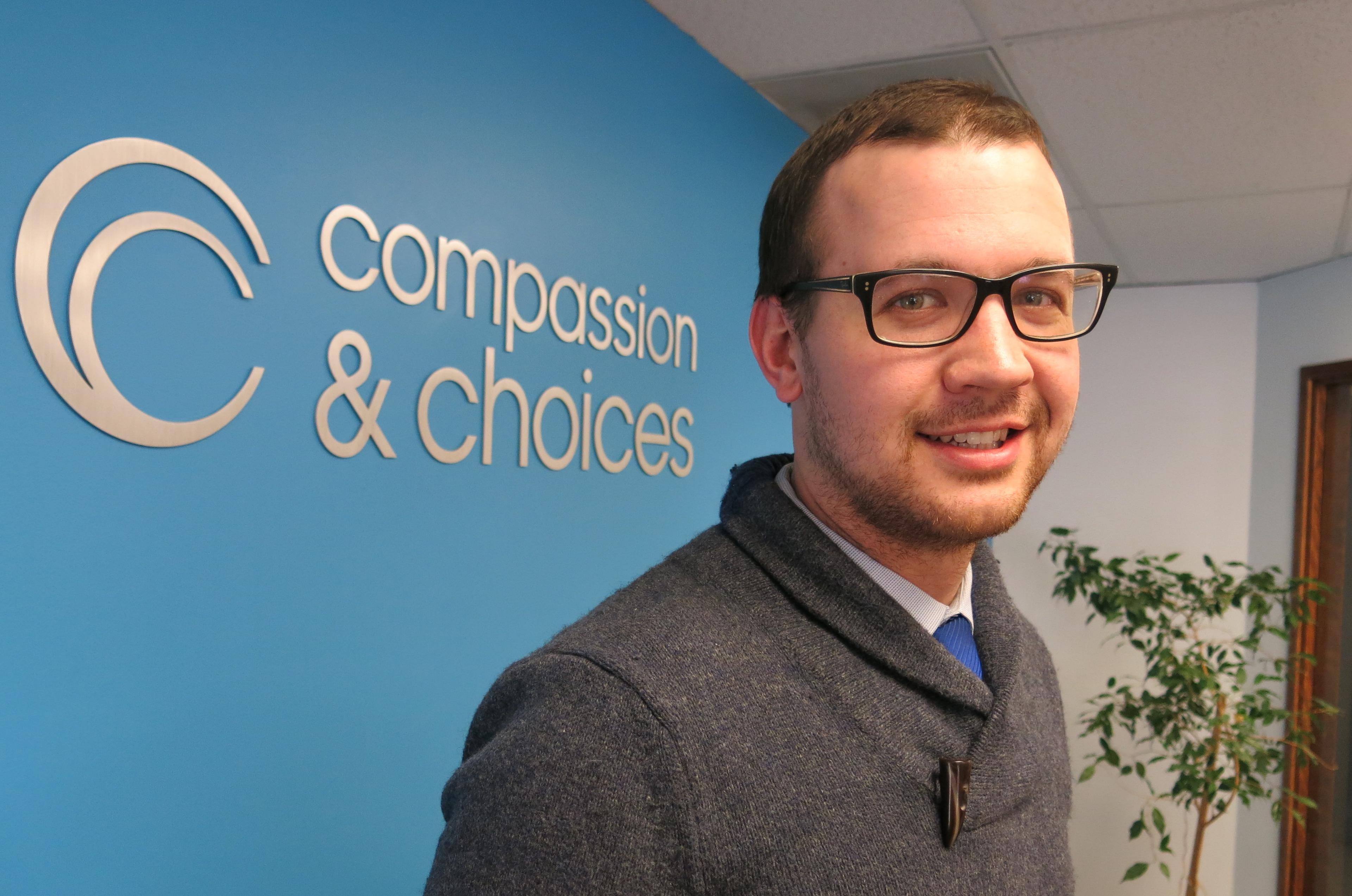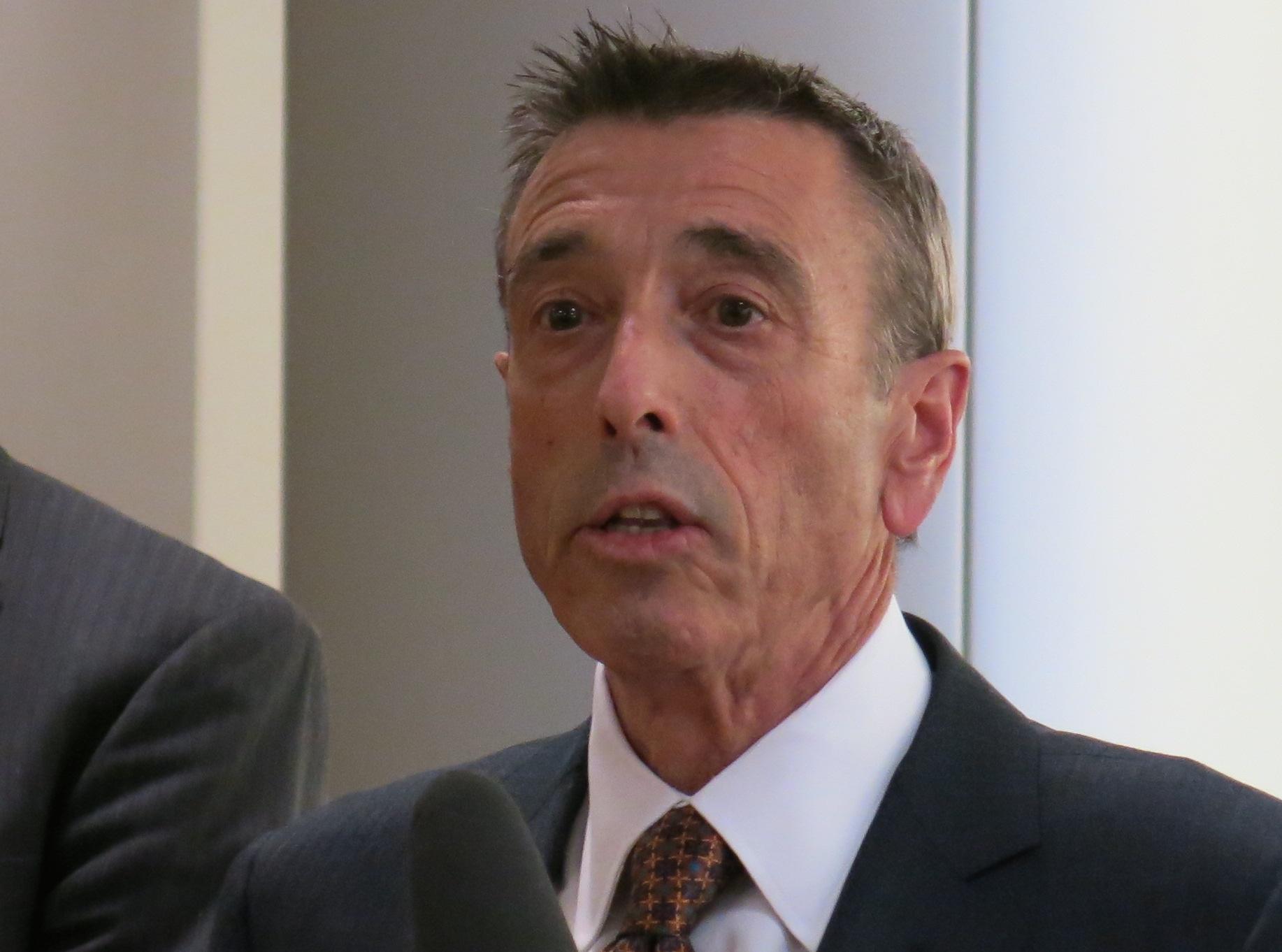
Two of the state’s faith-based health systems will opt out of Colorado’s new medical aid in dying law. The law, which voters approved in November, allows terminally ill adults get medication from a doctor to voluntarily end their lives. But now patients and physicians face questions about how to use the law.
Centura Health and SCL Health are two of the state’s largest health care systems. Their affiliation with the Catholic Church has led both to post statements on their websites saying they will not help patients end their lives. SCL Health CEO Michael Slubowski said it's “not something that we see as consistent with our values.”
In its statement online, Centura Health said it “has a long tradition of believing in the sanctity of life, extending compassionate care and relieving suffering.” It said it offers a variety of other services like palliative care, hospice care, spiritual care services and mental health services “so patients and their families may live with dignity until the patient’s time of death.”

SCL Health’s statement echoed those sentiments: “We believe we can provide compassionate care and comfort to our patients so they can live with dignity until the time of natural death.”
Slubowski said the law is clear: systems like SCL Health can choose not to take part. They will refer patients to another hospital. “The legislation allows for organizations to opt out as long as there is a written policy that's provided to patients, to physicians,” he said.
Backers of the new law don’t see it that way.
“We believe that their actions are absolutely not in line with the law or in line with, frankly, the intention of the voters who enacted it,” said Matt Whitaker with the national group Compassion and Choices, which strongly supported the ballot measure.
Whitaker, the group’s multi-state implementation manager, said institutions can bar a physician from prescribing a lethal medication dose, but only if a patient plans to use it on the premises. Otherwise, Whitaker said, according to the language of the law, health systems and facilities cannot opt out.

“They should go back to the blue book around the proposition and see what the voters really intended, which is for there to be an individual conscience clause,” Whitaker said.
That clause allows individual physicians a choice about whether or not to participate, he said. In states with similar laws like California, Oregon and Washington, Catholic health systems have opted out, but that left some residents without a way to get the life-ending medication in their community. So, Whitaker said, backers of Colorado’s law (as well as one in Vermont) tweaked the wording to include specific language to prevent entire systems from opting out.
“The drafters of the language in Colorado made sure that the conscience clause in the law was really an individual conscience clause,” Whitaker said. “It was left to the decision of physicians and patients rather than health systems.”
CPR News turned to the state for clarification. The health department referred us to the agency in charge of licensing physicians, the Division of Regulatory Agencies. DORA declined to offer any comment or clarification.
“There's a lot of confusion on the provider side, there's a lot of confusion on the consumer/patient side as well,” said Jennifer Ballentine, president of The Iris Project, a consulting firm that gives seminars on the new law to health care systems, doctors and patients.

Ballentine, who opposed the law, said doctors are telling her “they have patients who want to participate in this and cannot get any guidance about how to do it.”
“There are people out there wanting to take advantage of this and not able to do it,” she said.
Compassion and Choices has posted on its website frequently asked questions, how to talk to a doctor in Colorado and the medical aid-in-dying form needed to request end-of-life medication.
In Fort Collins, at Dr. Cory Carroll’s family practice, about 20 percent of his patients are over 70. He hasn’t had any requests to write a life-ending prescription yet, but it’s only a matter of time.
“I know there’s going to be patients that will present to me, ‘Doc, what about this new law?’” he said.
Carroll, who backed the new law, sees the dispute between the two sides as “growing pains.” Other states have dealt with similar transitions, and Colorado will work through the confusion.
“This is not something brand new, it's being done in other states,” Carroll said. “They've had these same issues, these same problems and somehow they've survived. We will survive as well.”
Denver Health, the Front Range’s primary safety net institution, is also not participating. “Denver Health has opted out for now,” said media relations manager Kelli Christensen in an email. Other systems like Kaiser and UCHealth say they will participate. Another, HealthOne, will allow its doctors to discuss and even prescribe, but the meds can’t be dispensed or administered at its hospitals.

Steven Summer, CEO of the Colorado Hospital Association, said the association agrees that health systems can opt out. “That's our reading of the statute, there may be need for some legal clarification,” Summer said, adding that some hospitals are moving cautiously to make sure they get it right. “To take a major system like this and create the right education program takes some time.”
For now, nearly a third of the state’s more than 100 hospitals are not participating in the new law. In some rural parts of the state, those are the only hospitals nearby. Backers of the new law say a legal challenge to the hospital systems opting out could be in the cards. Kat West, the national director of policy and programs for Compassion and Choices, said that it’s likely that when that lawsuit is filed, it will be “by a doctor or a patient of a facility which has chosen to prohibit its staff from participating in the law.”









